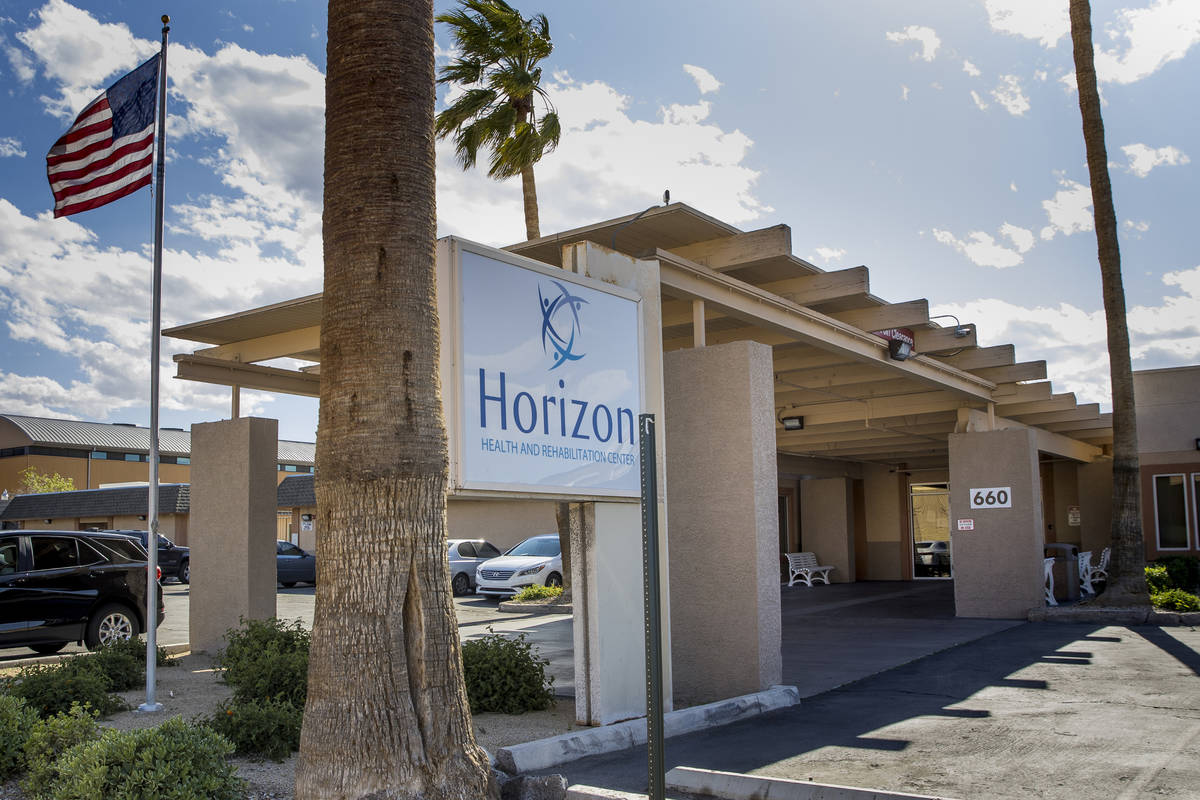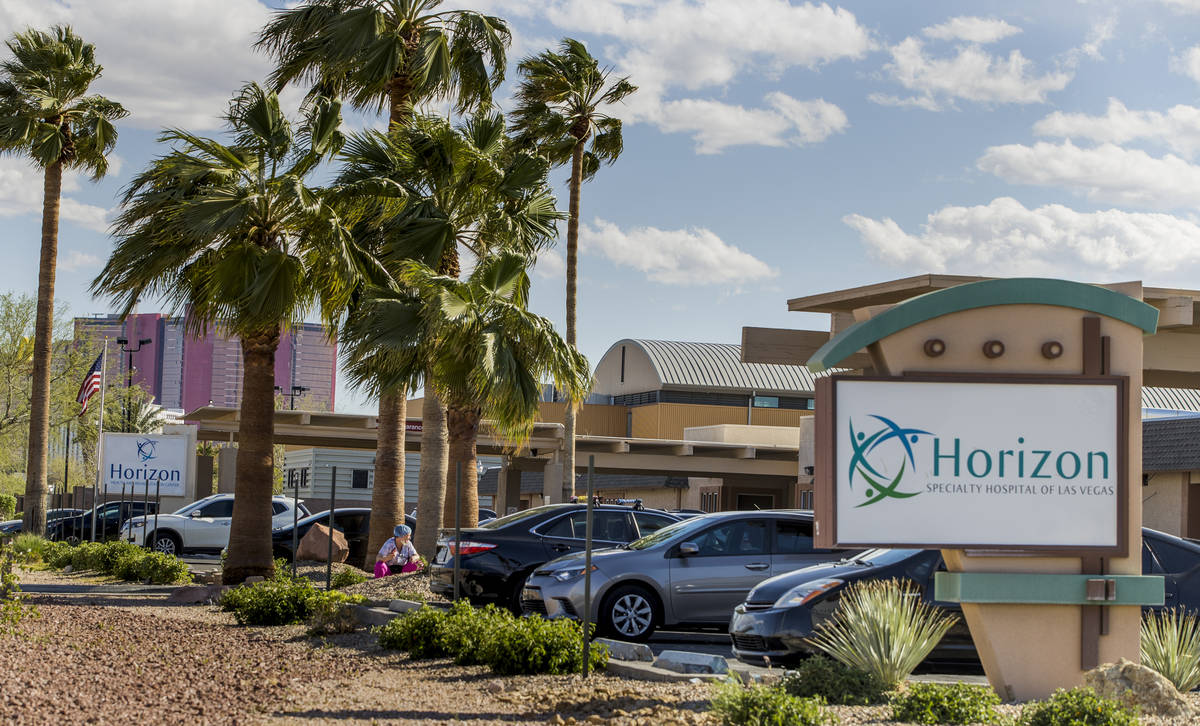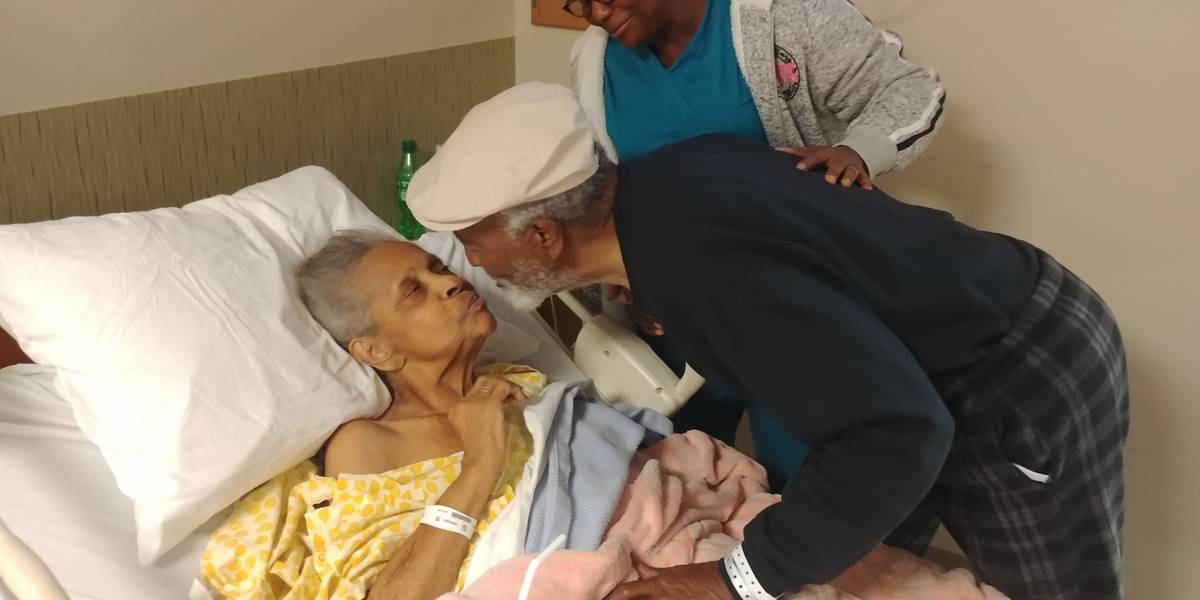COVID-19 nursing home patients not isolated — 7 dead, 38 infected
The nursing home resident’s first recorded signs of COVID-19 were subtle: a low-grade fever, accompanied by coughing.
By then it was late March, and staffers at Horizon Health and Rehabilitation Center in Las Vegas should have been on high alert. At least two of their residents had already been hospitalized and tested positive for the respiratory disease caused by the novel coronavirus, emails between public health officials show.
But medical records contained no evidence that the resident’s temperature was taken for five of the six following days. On April 1, a nurse noted that the resident had purple lips and struggled to breathe.
The resident, whose gender and other identifying information have not been made public, died at a local hospital on April 5. A test revealed that the resident had been infected with COVID-19.
Despite having symptoms in line with the disease, Horizon did not isolate the patient from their roommate. The roommate later tested positive too, according to a newly released, 29-page investigative report from the Nevada Department of Health and Human Services.
As COVID-19 ravages nursing homes across the nation, state investigators determined that infection-control deficiencies at Horizon placed the home’s residents in “immediate jeopardy” of serious injury, harm or death from the pandemic.
The 138-bed facility has seen one of the worst outbreaks in Nevada, where coronavirus-related deaths at nursing homes account for about 20 percent of the state’s more than 390 virus-related deaths. The Heights of Summerlin in Las Vegas has reported the most deaths, 26, in the state.
As of Friday, the disease had infected 38 residents at Horizon, killing seven. An additional 37 staff members have contracted the disease, leading health officials to designate Horizon as one of four “high-risk” nursing homes in Nevada.
The most alarming deficiencies include that the nursing home did not follow federal guidelines to isolate patients known or suspected to have COVID-19 in a quarantine wing with designated staffers. Investigators also substantiated a complaint that residents who had been exposed to the disease were moved into rooms with people who hadn’t been exposed, the report states.
“It wouldn’t take long for that disease to spread,” said Christopher Cochran, a UNLV professor who chairs the department of health care administration and policy. “All it takes is one person not to adhere to the guidelines who has interaction with these patients.”
Horizon interim administrator Brett Passon and director of nursing Mark Dinardo did not respond to multiple emails requesting comment for this story.
But according to the state’s investigative report, Horizon officials did not admit to the accuracy of investigators’ findings and claimed that the alleged deficiencies “do not individually and collectively, jeopardize the health and safety of the patients.”
Horizon leadership told investigators that federal guidelines were changing so often that it was unclear what the facility should be doing, according to the report.
Those explanations fell short for Marilyn Clark, whose parents reside at Horizon. Both tested positive for COVID-19 in mid-April, but Clark’s family didn’t find out that the disease had infiltrated the nursing home until her sister read about the outbreak in a news article.
“Management, where are they in this facility?” Clark asked. “What are they doing?”
Clark said both her parents were asymptomatic throughout the disease, but they were placed in separate rooms after state investigators came into the facility. They’ve since been reunited.
Investigation started in April
State investigators arrived at Horizon in early April and immediately began identifying problems, the report shows.
They pieced together their investigation through on-site inspections, residents’ medical records and interviews with 13 staff members, including the facility’s administrator, nursing director and infection control nurse.
They found five cases in which a resident’s roommate had tested positive for COVID-19 but the resident was not moved into another room or unit to be quarantined.
“That’s a pretty serious allegation right there,” Cochran said.
In another violation of infection control protocols, medical records indicated that a resident showing COVID-19 symptoms was “wheeling” around the nursing home, the report states.
Horizon officials said they did not create a quarantine area because moving patients would create “a greater risk of spreading the virus,” the report states. They also said there were too many employees out sick to designate part of the remaining staff to only treating patients in a quarantine wing.
Investigators found that Horizon’s staffers also struggled to obtain the personal protective equipment necessary to perform their duties.
On April 5, a staff member examined a suspected COVID-19 patient from the doorway of their room “because no personal protective equipment was available,” according to Horizon records reviewed by investigators.
Investigators later found that some of Horizon’s medical staffers weren’t trained to properly wear close-fitting N95 masks while treating COVID-19 patients.
Many workers told investigators they were not aware that they had violated infection control protocols, the report states.
Those violations included a staff member’s failure to disinfect a vital sign machine between treating patients.
On another occasion, a worker cleaning a room for “contact isolation” touched her face mask with contaminated gloves and came out four times to get supplies from a cleaning cart without washing her hands.
Investigators also spotted a biohazard bag attached to the railing of a bed occupied by a patient.
Corrective actions
State health officials have directed Horizon to take a number of corrective actions.
The nursing home established a quarantine wing on April 10. Staffers are receiving new training on using protective gear properly, cleaning medical equipment and washing their hands. Infection control practices are also being reviewed.
Horizon will have to monitor its staffers to make sure they’re compliant and report any shortcomings to a state quality assurance committee every month for the next three months.
During its last regular health inspection in December 2019, Horizon received 17 health citations; the state average was about 13. Its health inspection rating is “average,” according to Medicare.gov’s Nursing Home Compare tool.
Clark, whose parents caught COVID-19 at Horizon, said the state’s demands on the facility will make things better only if the watchdogs continue to put pressure on nursing homes.
“When are they going to go back in and make sure the findings are really taken care of?” she asked. “These places house all our seniors, our grandmothers, our grandfathers. Someone needs to do the follow-up and make sure the facilities keep up, even after COVID.”
Contact Michael Scott Davidson at sdavidson@reviewjournal.com or 702-477-3861. Follow @DavidsonLVRJ on Twitter. Contact Briana Erickson at berickson@reviewjournal.com or 702-387-5244. Follow @ByBrianaE on Twitter.













































